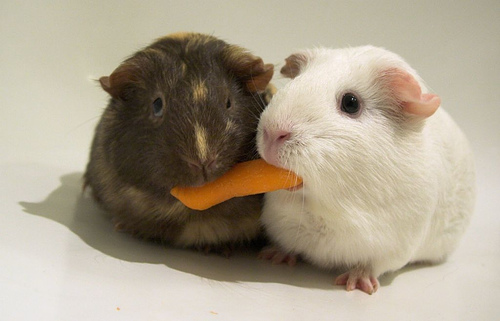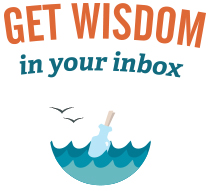I’ll tell you how it goes…
- You find yourself with a specific agenda. You have to sell something to someone, raise money from someone or persuade someone to take a particular action.
- Then you approach other people.
- You ask them to take some kind of action in accordance with your agenda.
- Some people oblige you. But most of the people decline.
- You rinse and repeat for as long as this agenda of yours proves worthy (i.e., it makes you money and/or you enjoy what it represents in your life). When both of those things go away you may be in the market for a new kind of agenda.
Admitting you “have an agenda” sounds a little more self-serving than it really is. Literally everyone has at least one agenda in their lives at any point in time. Yours could be a remarkably noble one – like raising good children or ending world hunger – but it’s no less of an agenda than trying to persuade people to buy your brand of vacuum cleaner over the other kinds.
We’re mostly taught to make our agendas known from the beginning – like the numbered list above demonstrates. Part of our American ethos, I suppose. I started selling advertising in 2008. My routine went a little something like this…
- I need to sell advertising to pay my bills.
- Cold-call a bunch of people that might be able to buy advertising.
- Ask them to meet with me so I can talk to them about buying advertising in person.
- Make about 1 sale for every 15-20 people that agree to speak with you.
- Rinse and repeat. My “pitch” improves over time and I experience a slightly better success rate within this model until I eventually traded this gig in for a new one after 15 months.
The upside to this approach is I wasted little time, got straight to the point and maximized the total amount of people I ultimately “touched.”
The downside to this approach is it goes against everything we know about how human beings develop relationships.
Consider the opposite. This Saturday Lindsay and I were outside trying to beautify our home when Patrick and Christina came over with a bottle of wine and an ice cream cake. They were strangers to us. Turns out they live a few houses away and wanted to welcome us to the ‘hood.
How do you think we feel about Patrick and Christina now?
Spoiler alert: Despite theirs being an age-old and somewhat popular (I mean, it wasn’t a JELL-O mold) gesture, I wanted to kiss them.
Patrick and Christina have an agenda. Their agenda is they want good neighbors. That’s the desired outcome of this relationship as they see it. If they did what most people do they would have came right out and asked us to do something a good neighbor would do (like cut their grass while they’re on vacation). They would have explained all the long-term benefits to cutting a neighbor’s grass and why their grass is better to cut than all the other neighbors.
But they didn’t.
I think we all can learn something from Patrick and Christina. All too often we’re taught to act in the immediate, self-serving interests of our agenda. Anyone who’s ever been in sales can tell you about this. But that mindset forces us to begin relationships by asking for something. Good relationships don’t begin that way, though. They’re more like bank accounts. Withdrawals are a lot easier to take once you’ve made a few deposits.
Now back to you and your agenda. Getting what you “want” no matter how noble and worthy it is involves getting people to see you as a certain type of person.
You won’t be able to give a bottle of wine and an ice cream cake to everyone you meet, but that doesn’t mean you can’t find other ways to make a deposit on the front end of that relationship. The recipient won’t always write a blog post about you but they’ll certainly be a lot more likely to listen to whatever you have to say.
Ask something of them and they’ll likely find something better to do.
Take them to a better place and they’ll likely follow you anywhere.



